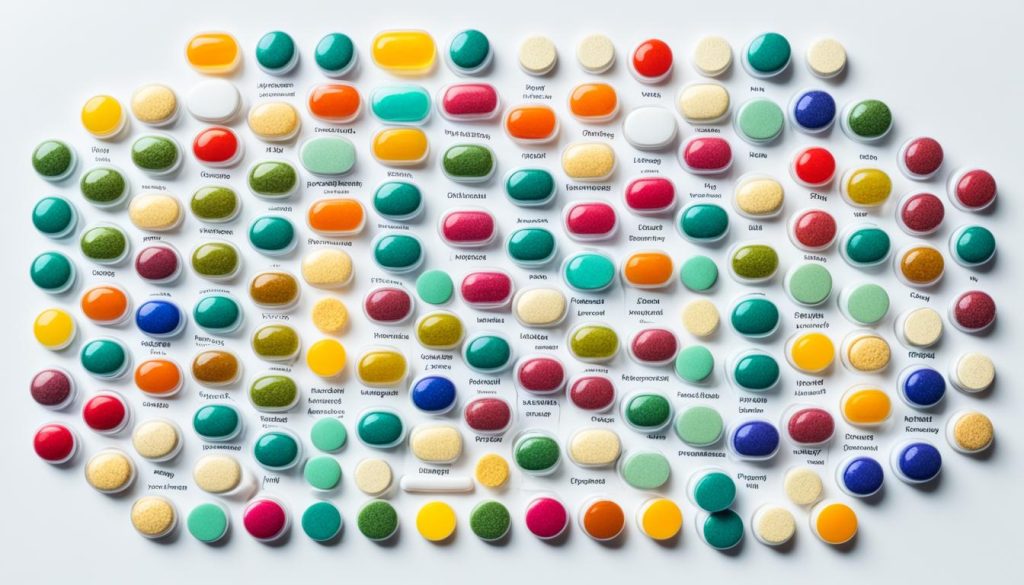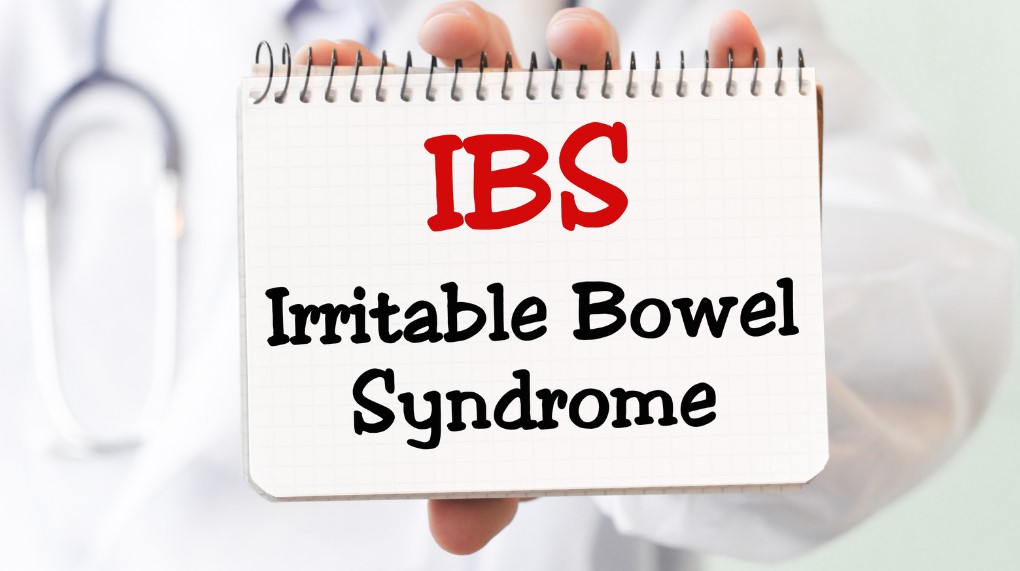How to Cure IBS Permanently?
While there is no cure for IBS, there are various treatment options available to manage symptoms and improve quality of life. Here are some key strategies and tips for managing IBS symptoms:
1. Adopt a Low FODMAP Diet
The low FODMAP diet is a widely recognized approach that involves limiting certain types of carbohydrates that can trigger IBS symptoms. Foods high in FODMAPs, such as certain fruits, vegetables, dairy products, and grains, are restricted initially and then gradually reintroduced to identify trigger foods. This dietary modification has shown effectiveness in reducing symptoms like cramping, bloating, and diarrhea.
2. Increase Fiber Intake
Adding more fiber to the diet can help regulate bowel movements and ease constipation. It is important to choose soluble fiber sources such as oats, psyllium husk, and flaxseeds, as insoluble fiber can exacerbate symptoms. It is recommended to increase fiber intake gradually to prevent excessive gas and bloating.
3. Avoid Gluten
For individuals with IBS and gluten sensitivity, avoiding gluten-containing grains like wheat, barley, and rye can help reduce gastrointestinal symptoms. Opt for gluten-free alternatives such as rice, corn, and quinoa to manage symptoms effectively.
4. Incorporate Probiotics
Probiotics are beneficial bacteria that can promote a healthy balance in the gut and alleviate IBS symptoms. Consuming probiotic-rich foods like yogurt and fermented vegetables or taking probiotic supplements may help improve digestion and reduce symptoms such as gas and bloating.
5. Identify and Avoid Triggers
IBS triggers can vary from person to person. It is essential to keep a food diary to identify specific food and beverage triggers, such as caffeine, alcohol, artificial sweeteners, and fatty or spicy foods. Through a trial and error process, individuals can customize their diet and avoid trigger foods accordingly.
6. Reduce Stress
Stress and anxiety can worsen IBS symptoms. Engaging in stress-reducing activities like therapy, meditation, exercise, and deep breathing exercises can help manage symptoms effectively. It is important to find relaxation techniques that work best for each individual.
7. Medications
In some cases, healthcare professionals may prescribe medications to manage specific IBS symptoms. These can include laxatives for constipation, anti-diarrheal drugs, antispasmodics to relieve abdominal pain and cramping, and in some cases, antidepressants to help regulate bowel function and improve overall well-being. It’s important to work closely with healthcare professionals to determine the most appropriate medication for individual needs.

By incorporating these treatment strategies and lifestyle modifications into daily routines, individuals can effectively manage their IBS symptoms and experience improved overall well-being. Remember, it is essential to consult with healthcare professionals for personalized guidance and support in developing an effective treatment plan.
The Role of Diet in IBS Management
Diet plays a significant role in managing IBS symptoms. Certain foods can trigger or worsen symptoms, such as those high in FODMAPs, which are fermentable carbohydrates that can cause bloating and other gastrointestinal symptoms. Following a low FODMAP diet involves eliminating these carbohydrates for a period of time and gradually reintroducing them to identify individual triggers.
Additionally, avoiding gluten and keeping a food diary can help identify and avoid specific trigger foods. It’s important to consult a doctor or dietitian before making significant dietary changes to ensure proper nutrition and guidance. A holistic approach to IBS treatment includes not only dietary modifications but also managing stress, getting enough exercise, and prioritizing restful sleep. Identifying and addressing individual triggers is essential for long-term management.
The Low FODMAP Diet
The low FODMAP diet is an effective dietary approach for managing IBS symptoms. FODMAPs are short-chain carbohydrates that are poorly absorbed in the small intestine and can ferment in the large intestine, leading to symptoms like bloating, gas, abdominal pain, and diarrhea or constipation. The low FODMAP diet involves restricting foods that are high in FODMAPs and gradually reintroducing them to identify individual triggers.
| Foods to Avoid (High in FODMAPs) | Foods to Include (Low in FODMAPs) |
|---|---|
| Garlic | Bananas |
| Onions | Blueberries |
| Wheat | Carrots |
| Apples | Spinach |
| Mushrooms | Quinoa |
Source: Image
Gluten-Free Diet
For individuals with IBS who also have a sensitivity to gluten, following a gluten-free diet may be beneficial. Gluten is a protein found in wheat, barley, and rye, and can cause inflammation and digestive symptoms in some people. It’s important to note that not all individuals with IBS need to avoid gluten, and it should only be eliminated if a gluten intolerance or sensitivity has been diagnosed.
By incorporating dietary modifications, individuals can gain better control over their IBS symptoms and improve their overall well-being. However, it’s important to remember that each person’s triggers and dietary needs may vary, so it’s crucial to work with a healthcare professional to develop a personalized plan for managing IBS through diet and lifestyle modifications.
Medications and Therapies for IBS Relief
While there is no quick cure for IBS, there are various medications and therapies available to provide relief from the symptoms. Individuals experiencing abdominal pain and cramps can benefit from prescribed antispasmodics, antidepressants, and pain relievers. Psychological therapies such as cognitive behavioral therapy and gut-directed hypnotherapy are recommended by doctors to address the gut-brain interaction contributing to IBS symptoms. It’s important to note that IBS is not considered life-threatening, but it significantly impacts an individual’s quality of life.
When it comes to managing constipation, over-the-counter options like laxatives and fiber supplements can offer temporary relief. However, it is essential to consult a healthcare professional to determine the most suitable medication or therapeutic approach for managing IBS symptoms. They can evaluate the severity of symptoms and prescribe appropriate medications to address specific needs.

Conclusion
While there is currently no known permanent cure for IBS, there are numerous strategies, tips, and treatment options available to manage and alleviate symptoms. These include dietary modifications, lifestyle changes, stress management, and medications. Following a low FODMAP diet, identifying trigger foods, and incorporating probiotics have been shown to be effective in relieving IBS symptoms for many individuals.
It’s important to work closely with healthcare professionals to develop a personalized treatment plan that addresses individual needs and triggers. By understanding and actively managing IBS, individuals can significantly improve their quality of life. Seeking professional guidance and finding the right combination of strategies is key to long-term symptom relief.
While a permanent cure may not be possible, individuals in the UK have access to a variety of resources that can help them effectively manage their IBS symptoms and lead a fulfilling life. By adopting a holistic approach that combines dietary modifications, stress reduction techniques, and appropriate medications, individuals can find relief and regain control over their IBS symptoms.
FAQs
Can I cure IBS permanently?
Currently, there is no known permanent cure for IBS. However, there are various strategies and treatment options available to manage and alleviate symptoms.
What are the symptoms of IBS?
Symptoms of IBS can vary but commonly include abdominal pain, bloating, changes in bowel movement patterns, constipation, and diarrhea.
What causes irritable bowel syndrome?
The exact cause of IBS is unknown, but factors such as abnormal muscle contractions in the intestine, a sensitive gut, inflammation, and changes in the gut microbiota may contribute to its development.
How can I manage IBS symptoms?
To manage IBS symptoms, it’s important to avoid delaying or skipping meals, eating too quickly, consuming fatty, spicy, or processed foods, and exceeding the recommended limits of certain foods and beverages. Additionally, incorporating dietary modifications, stress management techniques, and medication as prescribed by a healthcare professional can help manage symptoms.
Is IBS dangerous?
IBS itself is not considered dangerous or life-threatening. However, it can significantly impact an individual’s quality of life and may require ongoing management and support.
Can I cure IBS in one day?
IBS cannot be cured in one day. It requires long-term management strategies and a personalized treatment approach to alleviate symptoms and improve quality of life.

